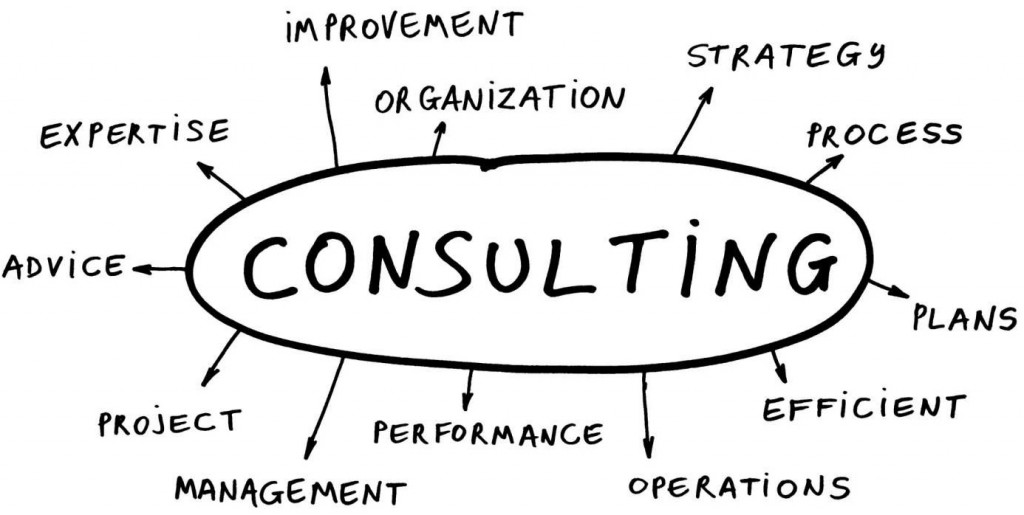
There are many advantages of entry-level positions in consulting. One example is that you can stay in your favorite boutique hotel and attend all-expense-paid retreats all while enjoying the benefits of your consulting job. The benefits are numerous, so you can either start a career, advance your current one, make life-long memories, or even upgrade your current one. Below are some of the most important benefits of consulting work. Learn more about entry level jobs in consulting.
Qualifications
There are certain qualifications that employers will be more interested in, but experience is the most important. This includes a wide range of experience such as business knowledge, team building skills, and analytical thought. In addition, experience in various business areas and an understanding of financial systems will be useful. Entry level jobs in consulting do not require any commercial experience. Graduates with a high GPA are more likely to land an interview and get hired by more senior consultants.
Entry-level consultants may not only have a professional qualification but also have extensive experience working in the business sector. A majority of consultants will have been through a graduate training program at a large blue chip company. As a result, candidates who have a diverse background will be considered experienced hire entry-level. These are other qualifications that can be used to qualify entry-level consultants. These are the prerequisites for entry-level consultants.

Career path
Start your search for a entry-level consulting job if this is something you've wanted since childhood. There are many benefits and opportunities for entry-level positions in consulting. In addition to a broad range of work, consulting jobs also allow for extensive development. Consultants need to be knowledgeable in marketing and how to target customers. Once they have these skills, they are able to move on to other roles in the company. Many entry-level consulting jobs are available. Once you graduate from college, you may be able to start working for a customer.
Generally, an analyst will have one to two years of experience and enter the consulting industry at the Associate Consultant or Business Analyst level. An MBA or other advanced degree-holder could have the experience needed to enter the industry at a higher position, but this is very rare. Associate Consultants are usually the first level in the industry, with the possibility of moving up to more senior positions. If you're just starting out, you can also pursue a career in management consulting.
Compensation
There are many ways you can negotiate compensation for entry-level consulting jobs. To retain and attract top candidates, many firms offer high-paying jobs in consulting. Sign-on bonuses are offered by some firms to encourage high-performing consultants. In return for a sign on bonus, some may need sign-on incentives. Read the compensation details carefully before you accept the job. The compensation packages for entry-level positions are usually set by consulting firms.
If they are fortunate, first-year consultants can earn more $60,000 than their counterparts in the industry. These salaries are not that much different than those of other middle-class jobs. Remember that consultants work long hours, and may only earn a few hundred million dollars annually. You will be expected to work long hours, even if your job is a high-paying one. This can be compensated with performance bonuses, which can be as high as 25% to 30% of your base salary.

Hourly rate
The hourly rate for consulting varies depending on the company. Hourly rates at Big 4 firms can start at $350 and go up to $1,000. Entry-level consultants are often paid by partners. A mix of resources will be available to smaller boutique firms, with hourly rates ranging from $250 to $400. Independent management consulting firms will typically charge between $100 and $250 an hour. We'll be discussing the various types of consulting as well as the hourly rates.
BCG consultants typically make $161,700 annually. This includes a base salary of $165,000, $41,500 in bonus payments, and $9,000 profit sharing. Higher salaries are available in countries other than Pakistan, such as the UK or Russia. India has a minimum hourly rate of $4. Bain & Company's entry-level consultants may make up to $15 an hour.
FAQ
How did modern consultancy become possible?
The first consultants were accountants that helped companies manage finances. They were able to manage financial information and became "accounting experts". They soon expanded their roles into other areas like human resources management.
The French word "to advise" is the origin of the term "consultant". It was first used by businessmen to refer to someone who could give advice about how to run an organisation. Many business owners use the term "consultant" to describe any professional advisor.
What is the average salary of a consultant?
While some consultants make $100k+ per year, most consultants only earn between $25-$50k. The average salary for a consultant is $39,000. This includes hourly as well as salaried consultants.
Salary is dependent on experience, location and industry. It also depends on whether the consultant works from home or has a remote office.
How does consulting differ to freelancing
Freelancers, who are self-employed and provide services to clients without the need for employees, are independent contractors. They generally charge an hourly rate depending on how long they spend on a client project. Consultants are usually employed by companies or agencies. Their salaries are paid usually monthly or annually.
Because they set their own hours and prices, freelancers are often more flexible than consultants. But consultants have more benefits like vacation days, health insurance and retirement plans.
Consulting is it a job?
Consulting is not just an entry-level career choice for people who want to make money fast - it's also a great way to learn valuable skills and build a solid foundation that you can use throughout your work.
Consulting can offer many career opportunities, such as project management and business development. You might find yourself working on projects ranging from small start-ups to large-scale international corporations.
Consulting gives you the chance to grow and develop your skills. This could include learning to manage teams and write proposals, manage finances, analyze data, create presentations and conduct market research.
Who hires consultants?
Many companies hire consultants to help with their projects. These include small businesses, large companies, government agencies and non-profits.
While some consultants work for these companies, others are freelancers. The hiring process will vary depending on the complexity and size of the project.
There will be many rounds of interviews for consultants when you are looking to hire. Only then can you select the right person to fill the position.
What is the difference?
An advisor gives information on a topic. A consultant can offer solutions.
To help clients achieve their goals, a consultant works directly with them. Advisors advise clients indirectly via books, magazines, lectures and seminars, etc.
Statistics
- 67% of consultants start their consulting businesses after quitting their jobs, while 33% start while they're still at their jobs. (consultingsuccess.com)
- According to statistics from the ONS, the UK has around 300,000 consultants, of which around 63,000 professionals work as management consultants. (consultancy.uk)
- On average, your program increases the sales team's performance by 33%. (consultingsuccess.com)
- My 10 years of experience and 6-step program have helped over 20 clients boost their sales by an average of 33% in 6 months. (consultingsuccess.com)
- According to IBISWorld, revenues in the consulting industry will exceed $261 billion in 2020. (nerdwallet.com)
External Links
How To
How to Start a Consultancy Company and What Should I Do First
It's a great way for you to make money online by starting a consulting company. You don't have to have any business experience. Building a website is a great place to start a consulting business. After you have built a website, social media platforms such Instagram, Pinterest and LinkedIn will be useful to spread the word about your services.
You can use these tools to put together a plan for marketing that includes:
-
Writing content (blogs).
-
Building relationships (contacts).
-
Generating leads through lead generation forms
-
Selling products online
Once you've developed your marketing strategy, you'll need to find clients who will pay for your services. Some prefer to connect with people through networking events. Others prefer to use online resources like Craigslist and Kijiji. It's up to you to make the decision.
Once you have found clients, you should discuss terms and payment options. This could include hourly fees, retainer agreements, flat fee contracts, etc. So that you are able to communicate clearly during the entire process, it is important to understand what you expect from a client before you accept them.
The most common type of contract for a consultancy service is an hourly agreement. This contract allows you to pay a fixed amount each week or month for certain services. Based on the service you provide, you might be able to negotiate a discount based on the length of your contract. It is important to understand the terms of any contract you sign before you sign it.
Next, you will need to create invoices that you can send to your clients. Invoicing is one of those things that seems simple until you actually try it. There are many options for invoices to be sent to your clients. Some people prefer to email their invoices directly, while others prefer to mail them hard copies. No matter what you do, make sure it works!
After you've created your invoices, you can collect payments. PayPal is the most popular payment option because it's easy to use and provides multiple payment options. However, other payment processors are available, including Stripe, Square Cash, Google Wallet, Apple Pay, Venmo, etc.
Once you are ready to start collecting payments, it is time to open bank accounts. Having separate checking and savings accounts allows you to track income and expenses separately. It is also a good idea to set up automatic transfers into your bank account for paying bills.
When you start a consultancy business, it may seem overwhelming, but once you learn how to do it correctly, it becomes second nature. For more information on starting a consultancy business, check out our blog post here.
The best way to make extra cash is to start a consulting business. Many consultants work remotely. They don't have any need to deal with office politics, long hours or office politics. You have more flexibility than traditional employees because you aren't tied down by work hours.